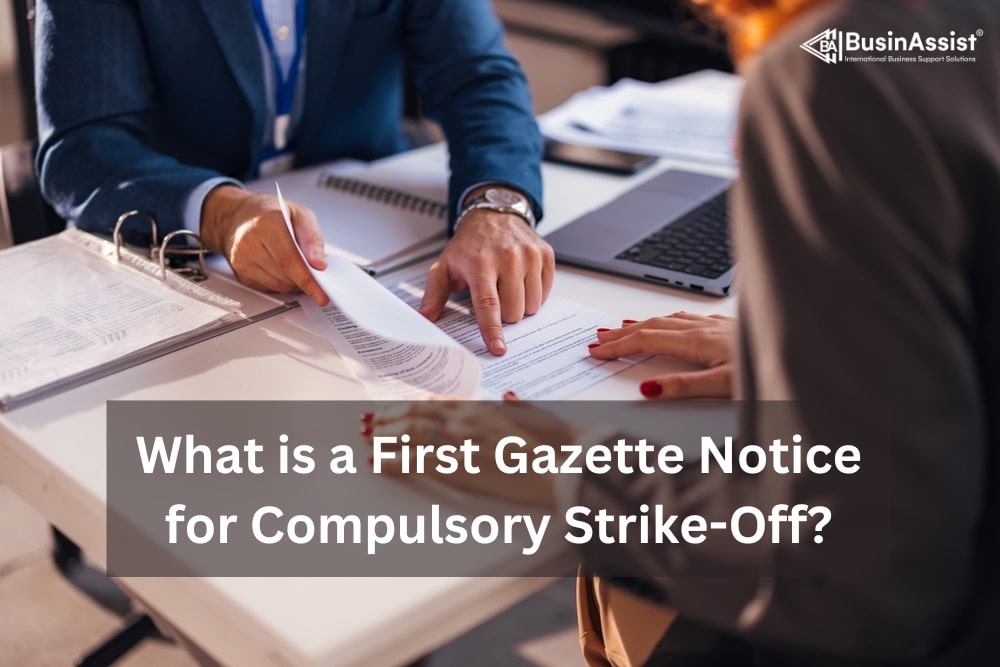First Gazette Notice for Compulsory Strike Off Clarified
First Gazette Notice for Compulsory Strike Off Clarified
Blog Article
Recognizing the Refine and Ramifications of Compulsory Strike Off Under Firm Regulation
In the realm of business law, the process and implications of mandatory strike off hold considerable weight for organizations and their directors. Recognizing the details of why companies deal with such an outcome, the precise steps included in the strike off process, and the significant ramifications for all parties entailed is crucial in browsing the complicated landscape of company administration. As we explore the factors behind required strike offs, the occurring treatments, and the subsequent consequences, a more clear image emerges of the extensive influence it can have on individuals and entities alike.
Factors for Compulsory Strike Off
Obligatory strike off under firm law is started by the governing authorities for particular factors connected to non-compliance or functional irregularities. The main factor for a company to encounter compulsory strike off is the failing to submit yearly returns or economic statements for an extended duration. This non-compliance suggests a lack of transparency and adherence to regulatory needs, elevating problems regarding the firm's monetary health and wellness and liability.

Process of Strike Off
Given the regulatory authority's initiation of obligatory strike off for different factors, understanding the procedure of strike off is crucial for business encountering prospective dissolution under firm law. The process commonly starts with the governing authority sending notifications to the business's registered workplace address, educating them of the upcoming strike off. It is crucial for the firm to attend to any superior concerns, such as filing overdue records or settling outstanding charges, within the defined timeframe to prevent dissolution.

Implications for Firms
What are the ramifications for business dealing with compulsory strike off under business regulation? Business dealing with mandatory strike off may experience several substantial effects.
Furthermore, the company's properties at the time of strike off become building of the state, which can cause monetary losses for investors and creditors. Investors might lose their financial investments, while financial institutions may have a hard time to recoup any superior financial obligations owed to them by the struck-off firm.
Additionally, directors of the company might face incompetency from holding similar placements in various other companies for a specified period (first gazette notice for compulsory strike-off). This can tarnish their expert online reputation and limit their future company opportunities
Effects for Directors
Facing compulsory strike off under firm legislation can have extreme implications for directors, influencing their future duties in various other companies and possibly tarnishing their professional standing. Supervisors of a company dealing with compulsory strike off might discover it testing to secure directorial placements in other firms in the future. This is because the strike off indicates a failure to comply with lawful responsibilities, raising worries about the director's capability to satisfy their duties efficiently. The tarnished professional online reputation resulting from a mandatory strike off can lead to a loss of check out here count on from service companions, customers, and stakeholders. Supervisors might likewise encounter individual financial responsibilities if they are found to have acted negligently or fraudulently, leading to possible legal activities against them. Overall, the effects of mandatory strike off for supervisors prolong past the particular company in inquiry, influencing their profession leads and professional reputation in the long-term.
Avoiding Compulsory Strike Off

Verdict
Finally, recognizing the procedure and effects of required strike off under firm law is important for companies and supervisors to make certain conformity with laws. By understanding the reasons for strike off, the procedure included, and the repercussions for all parties entailed, business can take actions to avoid undergoing mandatory strike off. It is necessary for supervisors to be proactive in keeping proper documents and conference legal responsibilities to stop the danger of strike off.
Given the regulative authority's initiation of compulsory strike off for numerous factors, recognizing the process of strike off is important for business encountering possible dissolution under company legislation.What are the ramifications for companies dealing with mandatory strike off under firm legislation?Encountering compulsory strike off under company regulation can have serious ramifications for supervisors, influencing their future functions in various other companies and site web potentially staining their professional standing. Directors of a business encountering mandatory strike off may navigate to these guys find it challenging to safeguard directorial settings in other companies in the future.In conclusion, recognizing the procedure and ramifications of compulsory strike off under company law is necessary for companies and supervisors to ensure conformity with guidelines.
Report this page